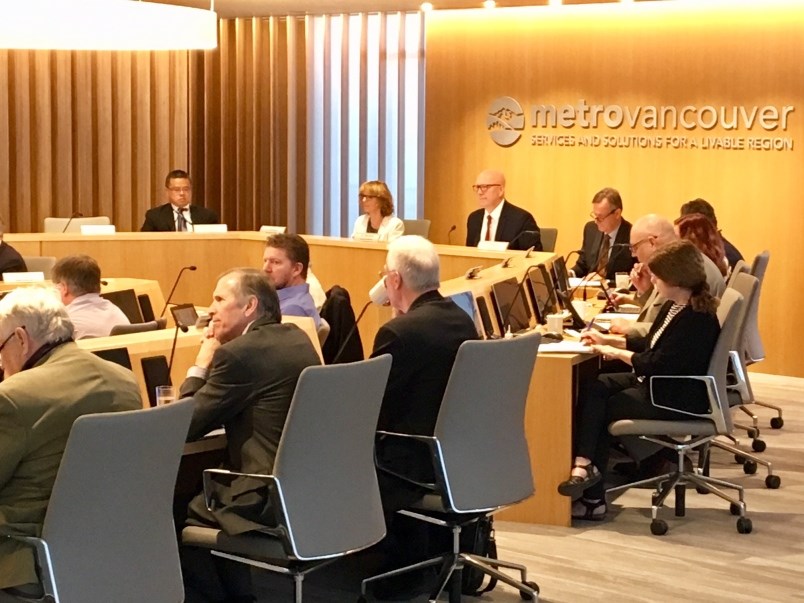Lower Mainland mayors did the right thing. Now it’s time to take a broader look at how politicians' pay packages are determined.
At their meeting Friday, Metro Vancouver board members, including the region's mayors, gave up a 15% pay hike that would have offset federal tax changes while a retroactive retirement allowance — widely opposed by the public — was also nixed, bringing sanity back to the board office.
This is good news, made only better by the fact that Metro Vancouver will also now establish an independent panel to review directors’ salaries and benefits.
This sort of thing has been tried at the municipal level with some success, with citizen committees and other third-party groups making recommendations instead of bureaucrats and their elected bosses.
But if the independent body only makes recommendations, then politicians will still ultimately vote on their own pay. Yes, an independent body puts distance between the politicians and their remuneration, but is that enough?
Maybe it’s time the provincial government stepped in and set a framework for politicians’ pay that is fair and recognizes the work inherent in public service based on the size of a city or school district.
Similar to how legislation governs how much money politicians can spend per capita at election time, the formula could put a fair dollar to the work city councils and school boards do that would eliminate some of the guesswork and disparities. One example is in School District 43, where trustees responsible for B.C.'s third largest school district are paid more than their counterparts responsible for two larger districts.
(A further problem with SD43 trustees' pay is that it is tied to that of city councillors in Coquitlam, Port Coquitlam and Port Moody — though not the much lower-paid village councillors in Anmore and Belcarra — and there is no way the work load of a trustee is comparable to meeting and reading requirements of a city councillor.)
Provincial oversight would respect the importance and size of city and school budgets, staff and decision-making responsibilities rather than time spent at community events or on social media; for example, cities with lots of growth and development whose councils have to make difficult decisions would be paid more than those that have smaller, less demanding portfolios.
Instead, the pay is more often tied to private sector management packages on the belief that such a scheme will attract better candidates, even some with executive experience.
There is also an argument to be made that those who are closest to the job, the politicians themselves, should make these pay decisions.
But based on current anomalies, particularly at the school district level, this may not be the case and a simple formula based on population and growth may be a better system.



